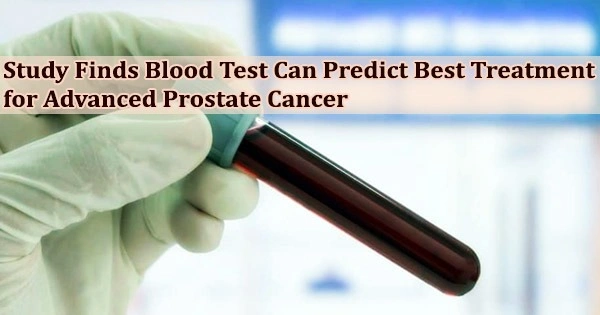One of the first studies to show that a blood test can predict how patients with advanced prostate cancer will respond to particular treatments, leading to improved survival, was conducted by Lawson Health Research Institute, Memorial Sloan Kettering Cancer Center, the Royal Marsden, and Epic Sciences.
The study made use of a liquid biopsy test created by the molecular diagnostics business Epic Sciences, which analyzes circulating tumour (CTCs) in blood samples from men with advanced prostate cancer who are debating whether to switch from hormone-targeting therapy to chemotherapy.
Cancer cells known as CTCs are those that leave a tumor, travel via the bloodstream, and infiltrate other regions of the body to spread the disease. The test determines if a patient’s CTCs have a protein called AR-V7 in the cell’s nucleus or not.
The goal of the study was to see if the presence of this protein could predict which course of treatment would best extend a patient’s life. Patients who tested positive for the protein responded best to chemotherapy based on taxanes, whereas those who tested negative for the protein responded best to hormone-targeting therapy with medications known as androgen-receptor signaling (ARS) inhibitors. These are the two most widely used drug classes to treat advanced prostate cancer.
“The study focused on a critical decision point when patients and their oncologists are choosing what therapy to pursue next,” says Dr. Alison Allan, a scientist at Lawson and Chair, Department of Anatomy & Cell Biology at Western University’s Schulich School of Medicine & Dentistry. “We are addressing a critical unmet need by validating that a blood test or liquid biopsy can be used to select a therapy most likely to extend a patient’s life.”
However, at some point, cancer cells can figure out a way to survive without this fuel and become resistant to ARS inhibitors, in many cases through production of the AR-V7 protein. That’s why chemotherapy is sometimes used a second line therapy.
Dr. Alison Allan
142 patients with advanced prostate cancer from the Royal Marsden in London, England, Memorial Sloan Kettering Cancer Center in New York, and the London Regional Cancer Program at London Health Sciences Centre (LHSC) in London, Ontario, participated in the study.
The patients were deciding whether to move to chemotherapy or another hormone-targeting therapy after at least one round of hormone-targeting therapy had failed for them. They were working with their oncologist to make this decision.
Hormone-targeting therapies like ARS inhibitors work by slowing or stopping the growth of cancers that use hormones to grow. Prostate cancer growth relies on hormones called androgens, which include testosterone. Androgen deprivation therapy like ARS inhibitors blocks the production of male hormones to treat the recurrence or spread of prostate cancer.
“ARS inhibitors are the preferred first line of treatment because they target the hormones that provide the fuel for prostate cancer cells to grow,” explains Dr. Allan. “However, at some point, cancer cells can figure out a way to survive without this fuel and become resistant to ARS inhibitors, in many cases through production of the AR-V7 protein. That’s why chemotherapy is sometimes used a second line therapy.”
While this study looked at predicting the best treatment for patients who had already undergone at least one round of hormone-targeting therapy, a future goal of the team is to assess the use of this test or similar CTC blood tests in determining optimal therapy at earlier decision points in advanced prostate cancer care.
The team also plans to collaborate further with Epic Sciences to evaluate different versions of the CTC blood test for other types of cancer, such as lung cancer.
Through Epic Sciences’ partnership with Genomic Health, the CTC blood test is now commercially available in the United States as the Oncotype DX AR-V7 Nucleus Detect.





